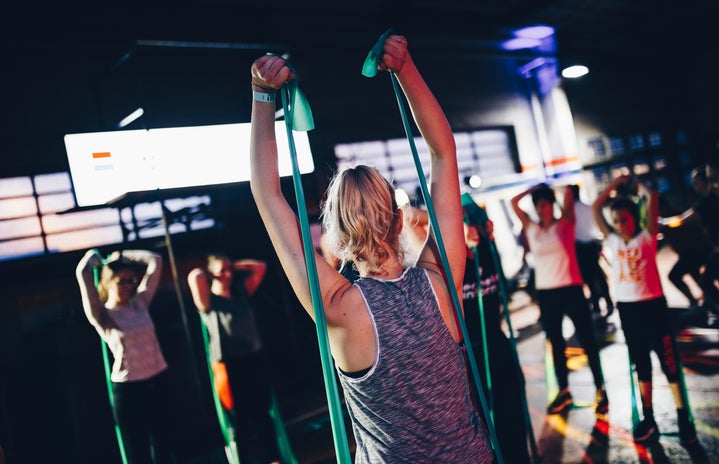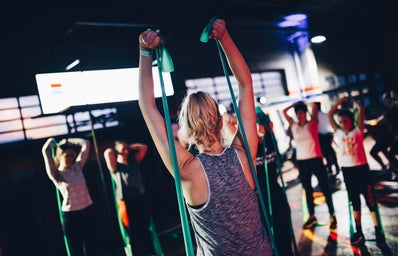Edited by Avleen Grewal
Sleep: it’s something that evades every university student. It’s the one thing most people give up when asked to choose two out of the following three: sleep, social life, and good grades (or if you’re like me, you end up giving up your social life due to endless procrastination). And yet, it’s the one thing that can actually help us get better at the other two!
I’ve always struggled with falling asleep for a variety of reasons, from trying to snatch that shiny 4.0 to stress and anxiety to just staying up watching The Lonely Island music videos until 2a.m for the fun of it. My sleep schedule has ranged from spending almost half the day asleep on holidays to getting a meager 3 hours during final exams. Of course, this began to have adverse effects on my health and my overall behaviour throughout the day. I resolved to fix this over the summer, and in order to do so, I decided to tackle three main aspects of my sleep problems:
- How to become a morning person
- How to adjust my sleep in a way that would best improve my mental health
- How a regular sleep schedule would change my behaviour throughout the day
Each of the three aspects required different things for me to do, but the ultimate goal was to fix my biological clock so that I could be more productive through the day and also deal with incoming stress better.
Becoming a morning person
I am the furthest thing from a morning person. I hate waking up early, and snoozing alarm clocks until I have no choice but to roll out of bed and run to the bus stop in my pajamas had become a daily occurrence. As a result, most of my sleep timings ended up with me going to sleep at 2a.m. and waking up at 8a.m. The solution to this, unfortunately, is simply sleeping earlier. It doesn’t even have to be anything ridiculous like 10p.m., but even getting into bed at 11p.m. can prepare you to naturally get up at around 6 in the morning, feeling more refreshed and not needing to force yourself out of bed. Studying in the morning is also more refreshing, seeing as you have already had the proper amount of sleep and breakfast to keep you awake and bright.
So I changed my sleep schedule to sleep from 11p.m. to 6p.m., and maintained this by planning my day out to finish all my work by 11p.m. (or planned to finish anything else early in the morning) and having someone hold me accountable to this new schedule. As difficult as it is, I also avoid scrolling through my phone before going to bed, as it definitely does not contribute to me feeling relaxed enough to sleep (I do this by leaving my phone in another person’s room, whom I can trust). And here I am, in bed at 11, but….I can’t sleep. I’m stressed and anxious, and too busy thinking and panicking to go to sleep! How do I fix this and sleep on time?
Sleep and mental health
As much as we would all love to sleep by the time we count the 10th sheep, it really isn’t possible for everyone. This is especially so when you struggle with stress and anxiety. However, sleeping at the right time can have amazing effects on your mental health: it’s not therapy or medication, but it definitely changes your mood on a day-to-day basis. So our first problem in this aspect is: how do I fall asleep when I’m stressed or anxious in bed. One of the things I started using was: ASMR.
No, seriously. ASMR.
Hear me out: even if you don’t get The Tingles™, certain ASMR videos can definitely help you relax into sleep. Hearing someone talk about all the makeup they have in a quiet, whispery voice easily puts me to sleep. It serves as a distraction from your anxious thoughts, as well as a nice quiet way to settle down into sleep. Or if it creeps you out, there’s still a lot more you can do! Another thing that gets me to fall asleep is the sleep meditation modes on many meditation apps. One of the great apps I use is Oak, which has both background sleep noises and sleep meditations for free. You can even adjust the duration of the audio to your needs!
Sleeping early also plays into better mental health, as I now wake up earlier in the morning, giving me more time to prepare for the day. I take longer showers, eat a healthier breakfast that doesn’t consist only of a double-double from Tim’s, and plan out my commute better!
So how did all of this affect my day-to-day?
General effect on daily attitude and behaviour
Needless to say, things are definitely much better! I wake up in the morning without three different alarm clocks (only one, but it’s pretty quiet) and feel refreshed and actually ready to get out of bed at the very least. I don’t fall asleep during the day as much, and don’t rely excessively on coffee to keep me alert. I also am able to organize my work better and give myself more motivation to finish it! Fixing my sleep has also motivated me to tackle other aspects of my health, such as diet and exercise. I still have moments where I can’t sleep due to stress, and sometimes have to stay up a bit late to finish something really important, but I make sure to make that up during the weekend and more importantly, forgive myself for any schedule changes! Changing certain parts of your schedule is very difficult, and forgiving yourself for any mistakes along the way and constantly attempting change will help make the change more permanent.
Getting 7-8 hours of sleep can have a huge impact, from regulating our hormones, hunger and immunity better to improving our brain function and memory. It is an infinitely small change to make in our lifestyle compared to other things, but it is definitely worth it!
Image 1 | Image 2 | Image 3 | Image 4

